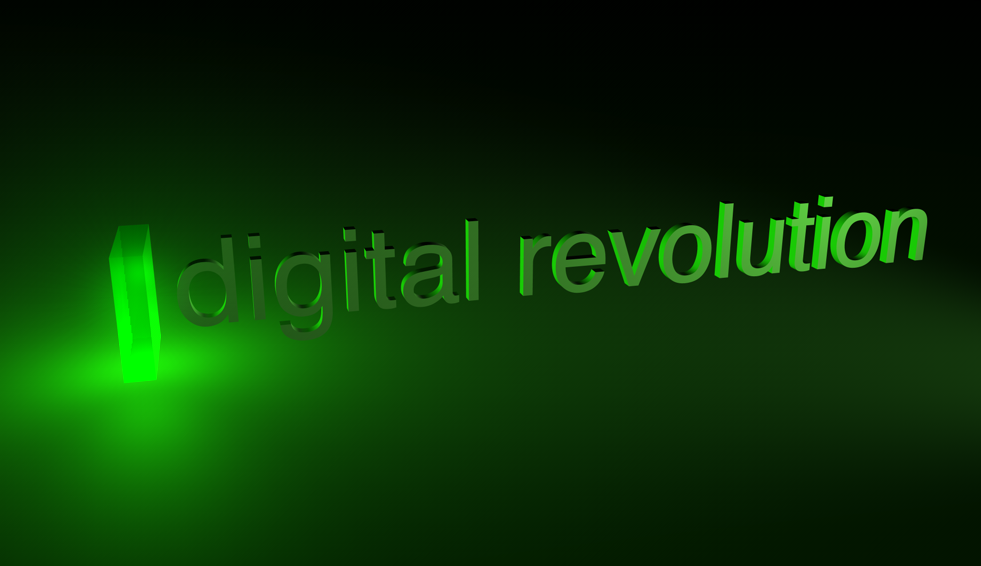Digital Evolution
Geoff Pevere in the Toronto Star has launched a series of articles on the effect the Digital Revolution is having on our consumption of media. His first piece in the series is about movie consumption, and I thought I would link to it because it is a pretty in-depth discussion of how movie-going has and hasn’t changed, and how it might change still more as time goes on and entertainment increasingly becomes something we don’t go out to enjoy.
Share
 Geoff Pevere in the Toronto Star has launched a series of articles on the effect the Digital Revolution is having on our consumption of media. His first piece in the series is about movie consumption, and I thought I would link to it because it is a pretty in-depth discussion of how movie-going has and hasn’t changed, and how it might change still more as time goes on and entertainment increasingly becomes something we don’t go out to enjoy.
Geoff Pevere in the Toronto Star has launched a series of articles on the effect the Digital Revolution is having on our consumption of media. His first piece in the series is about movie consumption, and I thought I would link to it because it is a pretty in-depth discussion of how movie-going has and hasn’t changed, and how it might change still more as time goes on and entertainment increasingly becomes something we don’t go out to enjoy.
My personal inclination is usually to be on the side of the people who say things haven’t changed as much as you think. There are always changes in technology and methods of delivery, and in the end people still want entertainment and companies still figure out how to make money off it. The concept of “one-to-one media,” as described in the article by Don Tapscott, sounds a lot like older descriptions of television, and the extent to which users expect to participate in the media they consume may be overstated. (We expect to talk more about it, online and elsewhere; but most people aren’t making their own media, and what self-created content does exist is not usually revolutionary in scope — it sort of harks back to an age when copyright laws were less stringent and unauthorized adaptations and revisions of Dickens’ novels were flooding the world.) But I don’t want to have some kind of knee-jerk denial that things are changing; they are.
I do think that movies are more stable than television or music because movies already went through a massive contraction and near-collapse. Movies aren’t going to get back to having as big a share of the entertainment audience as they once did. Television cut deeply into the movie theatre audience, and so did things like the increased availability of household air conditioning. People still go to the movies to get out of the heat for a couple of hours, but not as many as in the ’30s, when the summer (which was originally not a great time for movies) became the core of the movie industry. Television has been going through the kind of audience erosion that movies already experienced; once they hit bottom people can regroup and make the new reality work for them.
One other thing I sometimes suspect is that technology is often blamed or credited for changes that have their origins elsewhere. Thanks to the media developments of the last decade, more older material is available more easily than it ever was before; it’s easier to find movies and television from any era, whenever you want. That isn’t happening much, but it could happen — that could, theoretically, be a result of technological developments. But it isn’t happening that way at all, and I think we have to look beyond technology for an explanation.
Technology’s a part of it, but culture is a bigger part of it, and cultural shifts are affected by new technology; they’re not one hundred percent defined by it. So the changes in technology will affect the way we get our movies and shows and books, but what we expect from our movies and shows and books may not be all that closely related to how we get them.
Update: Since that last paragraph (as pointed out in comments) is kind of unintelligible, let me try to say it in a way that makes sense. What I’m saying is that I don’t think new media affects the stories we like to hear, and the way they’re told, as much as the linked article seems to imply. Over the next few years we’re going to be getting more and more of our entertainment from non-physical sources, and social ways of getting entertainment (watching TV together, going to the movies together) will probably decline in importance, not to mention wiping out certain traditional entertainment jobs like movie projectionists. But there’s not necessarily a direct relationship between the way we get entertainment and the kind of entertainment we want to see. The rise of multiplexes was, as the article says, a big change in the way movies were delivered and how we made decisions about what movie to see — it became a question of just going to the movie theatre and then deciding what film to see. But movies themselves didn’t change as much as they did in earlier eras, and even as theatres gave you more and more choices throughout the ’80s, the range of movies being turned out by the studios arguably got more constricted. The rise of the multiplex was a response to new realities in the way movies were distributed and the way people lived; as a delivery system, it arguably reacted to changes more than it created them. And I think the new delivery systems may turn out the same way — they’re going to change the way we watch things, but I don’t think you can jump from that to saying they’re going to change what we watch.